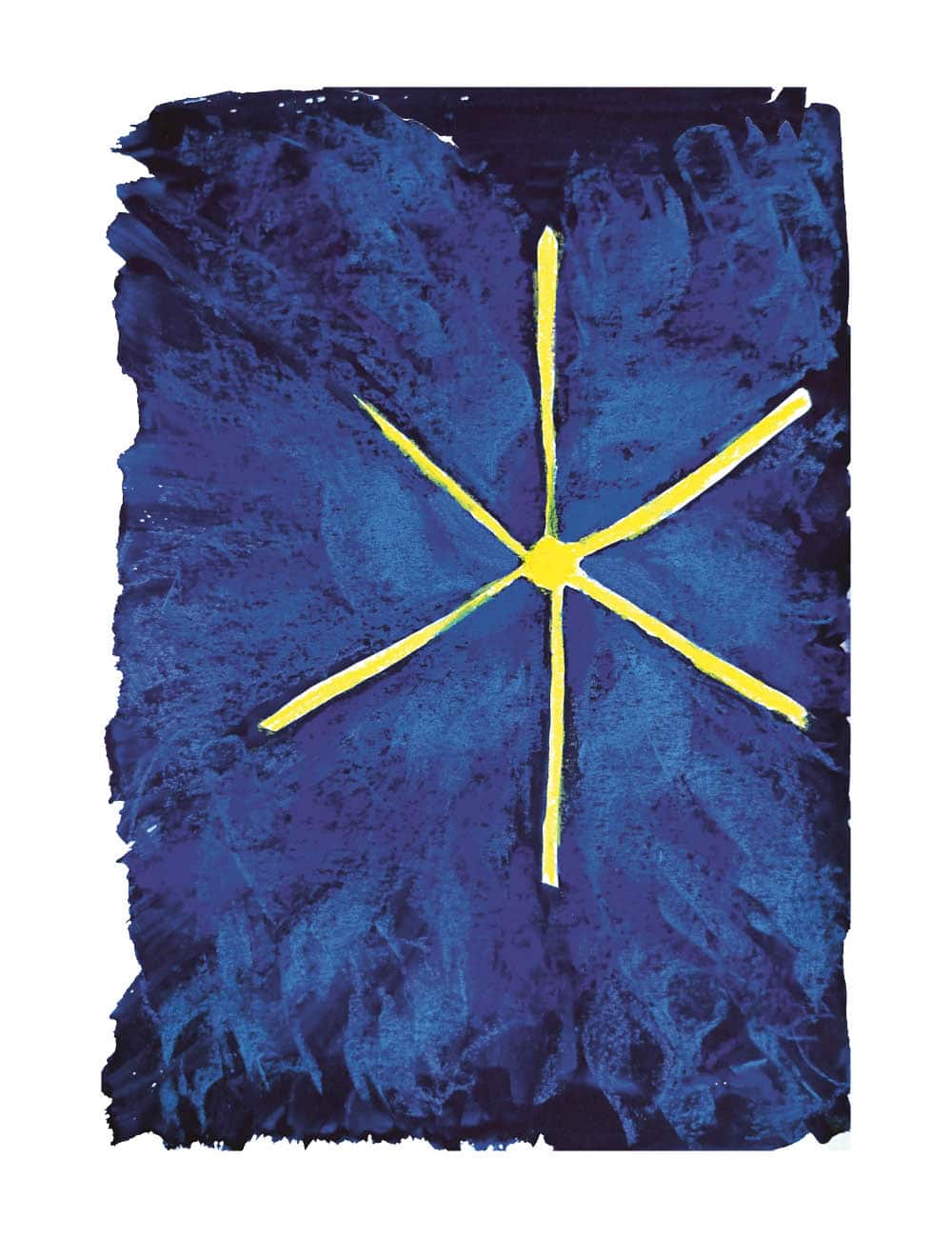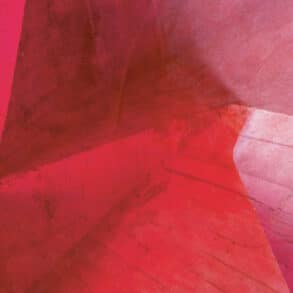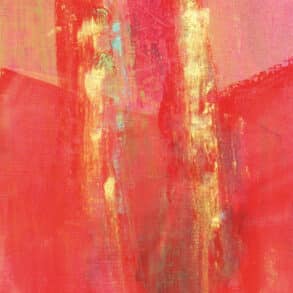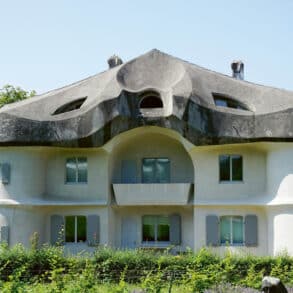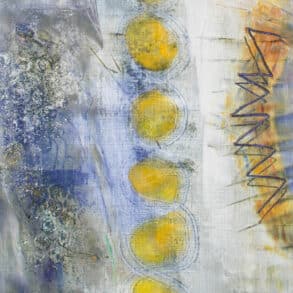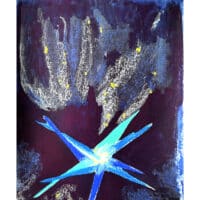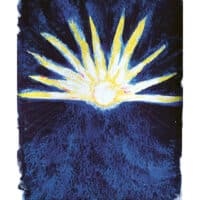What does it take to find the strength within, in a moment of complete and total despair? It is our strange human ability to pick ourselves up, dust ourselves off, and keep trying again. It requires a will that often finds its way into a human being once they have given up, once the odds seem insurmountable, and comes in that moment of grace when “all hope is lost” but from deep within there arises an impulse to go on.
I think again and again of the photo of the solemn figure standing there, on the ruins of the first Goetheanum, in January 1923—a profound and compelling testament to the impermanence of the material world that brings with it a haunting, visceral sense of loss and destruction. Seventeen nations were represented among the people who spent 9 years crafting the ephemeral structure, which only had a momentary presence in a world on the brink of war. Perhaps the impermanence of the building was part of the experience of it, like a sandcastle or a flower blossom.
At the time of the renewal of the Goetheanum, there was great animosity in the world toward anthroposophy, and to rebuild was a bold act of both hope and defiance. Rudolf Steiner was neither timid nor hesitant in the face of total devastation, as if there was no question but to proceed—a sense of recognition of the inherent goodness and purpose of life and a step taken as if summoning the future to happen in the immediate moment. The essence of this effort is neither flexible nor docile—it is iron-willed and accompanied by a complete trust in the potential of the future and in the community of guardians involved in carrying on.
A latent but essential potency of will in the human constitution propels us forward. Although sometimes undiscovered, there are times when a certain set of biographical circumstances, quickened with our own efforts, reveals and activates our inner resilience. So I marvel at how the natural world has no option other than to express the forces that compel the leaves to drop in autumn, only to be restored in spring. The active impulse is so integral and apparent in Nature that it permeates the atmosphere. We see it in the moments when the bud is roused to break through the frost, and the seed is pulled from its slumber into a sprout. I feel it as the courage of conviction mixed with a deep longing.
The determination of will, visible as a formative force in Nature, is reflected back as hope within the human being—a healing force shaping the physical body and inviting the soul to awaken. Our soul’s evolutionary journey awakens in the oscillation of the seasons, of harmony and discord, and of love and loss. Like the renewing force in Nature, the drive to go forward in perseverance, with zeal and expectation, is inherent as part of our constitutional nature and awakened even more so when shared between people and nurtured in community.
This week, I paused to witness the Goetheanum and its surroundings blanketed with the first snowfall of the season. Such deep peace arose in me as the snow fell in the evening and the Earth quieted down, receptive and calm. I greeted the next day excitedly, the landscape glistening in a white cover and the children (younger and older) out with their boots and sleds enjoying it. The moment was joyful in its beauty and brevity, knowing that the snow would not last long and the moment to enjoy it could not be postponed. It was a moment to live into, wholly and presently, in the midst of an uncertain and unsettling world, compelled toward the goodness and renewal already alive in the atmosphere and the Earth itself.
Illustration Gilda Bartel

